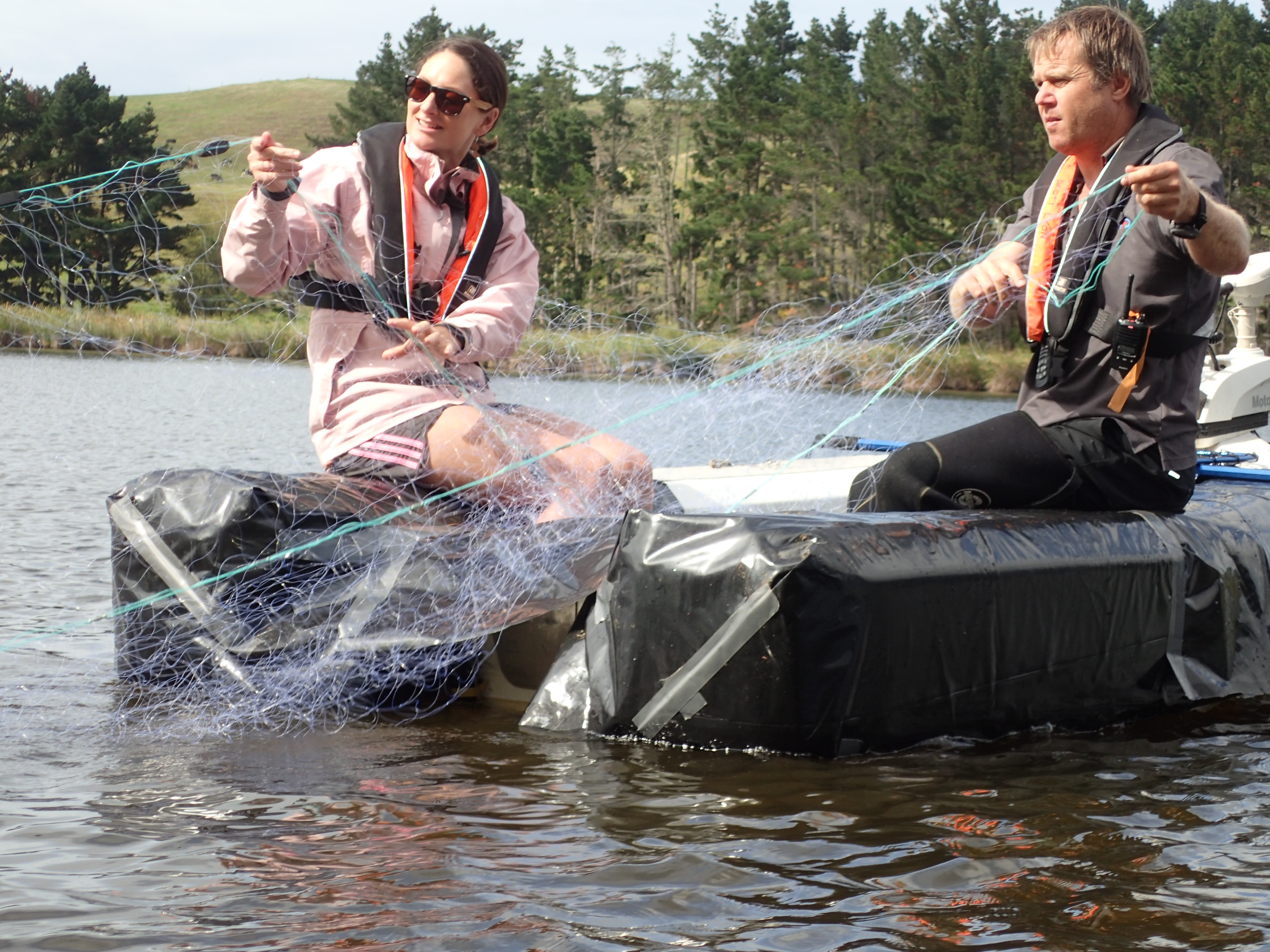Story
Growing great local science
Searching for rare frogs using e-DNA, shorebird surveys, and removing grass carp from a Far North dune lake are just some of the experiences Whangarei Girls’ High School science teacher Rachel Drysdale has had as she’s delved into the world of regional council science.
Rachel has spent the last six months with Northland Regional Council’s biodiversity team, as part of the prestigious Science Teaching and Leadership Programme through the Royal Society Te Apārangi.
“Our head of science, Suzie Scourfield, and I embarked on this programme to ensure our science curriculum is anchored back to our place and community – Northland has a unique environment with many taonga,” says Rachel.
“We want to empower our students to be scientifically literate in an ever-changing world and to be curious and engaged with what’s around them.
“We also want to ensure our curriculum gives mana ōrite to Mātauranga Māori, and provides place-based learning opportunities with linkages across the community.”
Rachel’s placement at the council has seen her spend time with many different people and projects, getting involved in shorebird surveys, estuarine species surveys, kauri dieback sampling, dune protection, freshwater pest fish control, wetland monitoring, community and school education events and more.
“No two days have been the same, and everyone has been so welcoming and inclusive in allowing me to be part of their field work.”
One of the highlights for Rachel was looking for the presence of the rare Hochstetter’s Frog in the Brynderwyns using a technique called eDNA sampling, where water samples can be taken and tested to identify all the organisms that have been present in that location.
Building community connections has been an incredibly valuable part of the experience says Rachel.
“As well as looking at the key skills scientists use in real-world contexts, it’s about seeing where our girls can take ownership of projects and contribute to their local environment in really meaningful ways through citizenship science.”
As part of council’s Enviroschools programme, Whangarei Girls’ High School already had a strong relationship with the council, which has been strengthened by the new connections Rachel has made across the organisation.
Rachel will head back into the classroom next term, though the Science Teaching and Leadership Programme continues for a further 12 months.
“That’s when the rubber hits the road – we take all of these incredible learnings and look at how we can apply that to our curriculum, grow scientific literacy with our students and inspire great science in our kura and our community.”

